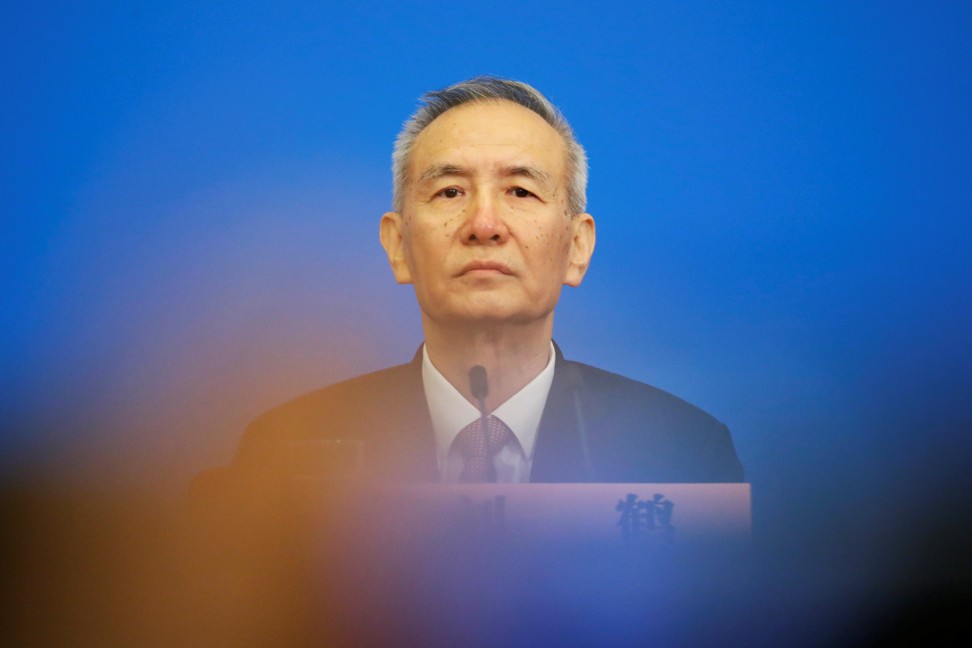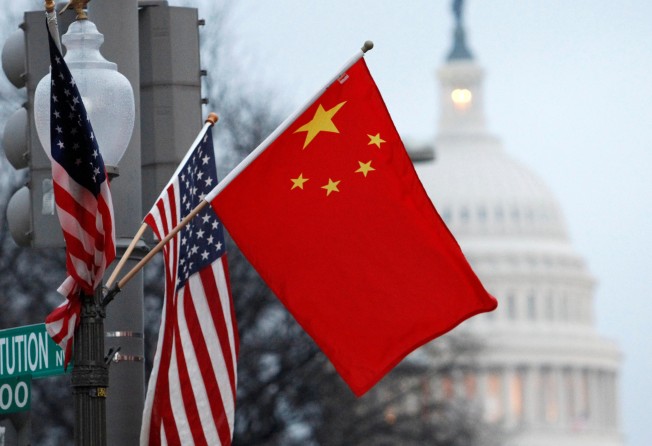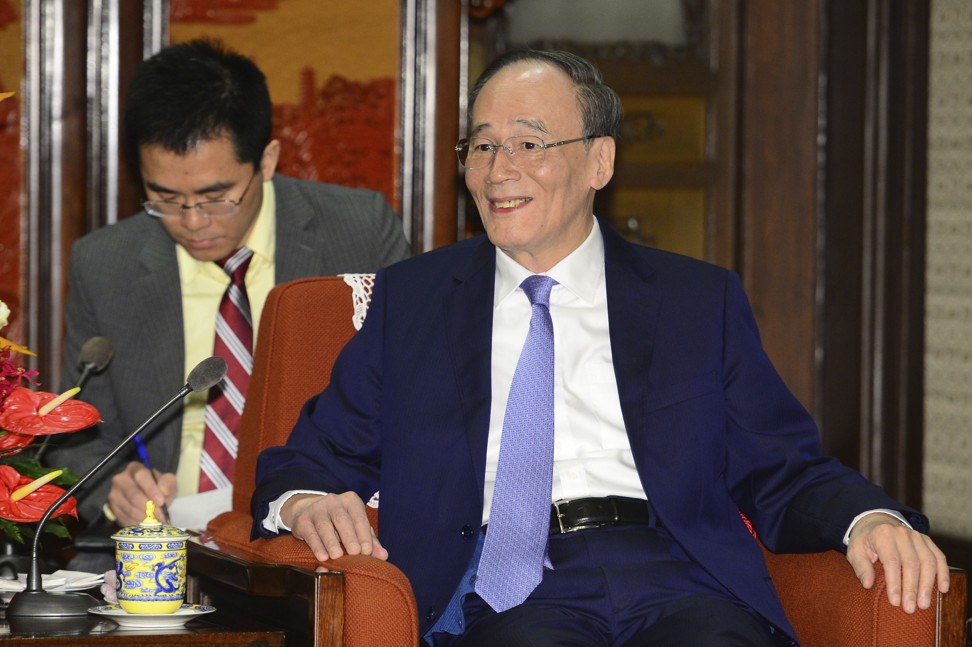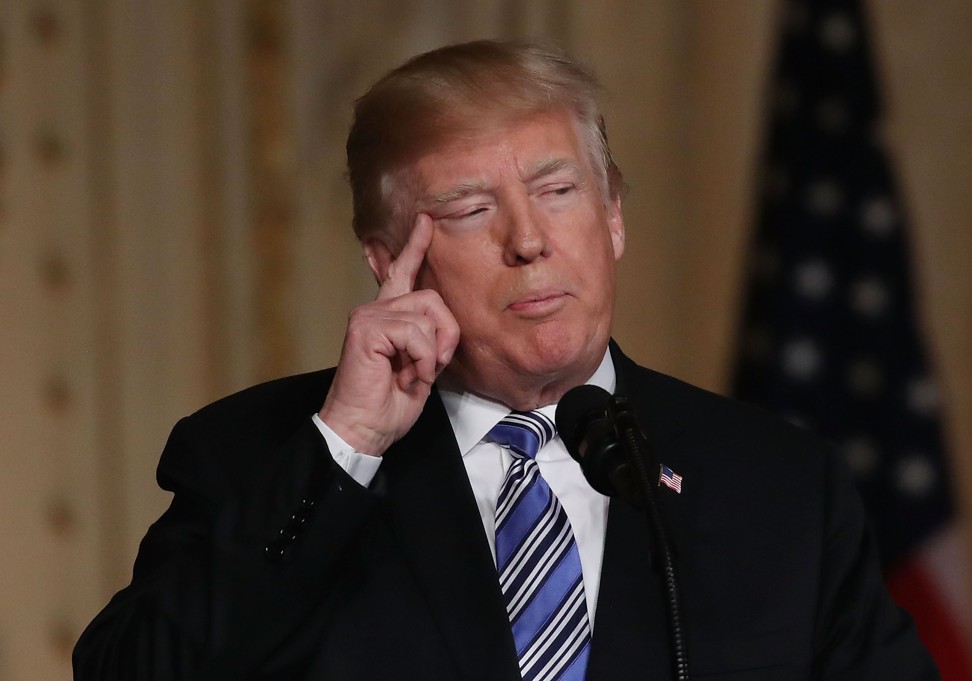
China may send ‘firefighter’ Wang Qishan to negotiate with US on trade
Observers say the vice-president could follow Liu He on a trip to Washington as Beijing tries to find common ground with the hardline US administration

China is considering sending more top officials to Washington to negotiate on trade as it struggles to find common ground with the hardline US administration, according to observers.
Vice-Premier Liu He is expected to visit Washington soon for a second round of trade talks, and Vice-President Wang Qishan could be next, observers said, with officials contemplating sending Wang, known for his “firefighting” skills, in late June or early July.
While Liu is in charge of negotiations with the US on specific trade matters, Wang could be seeking to keep strategic-level dialogue open on various issues, according to a source familiar with the situation.
Although there will likely be pledges from China to buy more American goods and expand market access during the next round of trade talks, observers say the fundamental conflict between its state-sponsored economic model and the rules-based system of the US will be hard to resolve.

As well as defusing trade tensions, Wang would also have the task of trying to contain US concerns about the progress and investment in China’s state-sponsored technology sector – a key source of friction between the world’s two biggest economies.
Arthur Kroeber, research head of China-focused Gavekal Dragonomics, said rivalry between China and the US was intensifying.
“Some kind of deal on tariffs or deficit reduction is possible but the underlying tech and strategic issues will not go away,” he said.
China’s ambitions to become a tech superpower through programmes like its “Made in China 2025” strategy to support the domestic hi-tech sector and the belt and road trade and infrastructure plan were perceived as “a direct challenge to US geopolitical and geo-economic leadership”, Kroeber said.

Wang, the former anti-graft tsar, was named vice-president and a top official overseeing diplomatic affairs during a leadership reshuffle in March. Foreign diplomats and businesspeople expect Wang, who handled China’s response to the Asian financial crisis in the 1990s, will also play a key role in efforts to ease trade tensions with the US.
Observers also said the team sent by Washington to Beijing for the first round of trade talks at the start of May showed the US still lacked a new playbook on China, as its members had “quite a different agenda”.
US President Donald Trump has made narrowing the trade deficit with China a top priority. Of the Beijing delegation, his trade adviser Peter Navarro is believed to be the closest in line with the president’s thinking but is more hardline about asking China to give up its industrial policy. US Trade Representative Robert Lighthizer, meanwhile, is regarded as skilful at moving the conversation away from tariffs and towards technology issues.

“China is struggling to figure out what would be the right strategy because it is difficult to negotiate with the Trump administration,” Kroeber said. “The problem from China’s perspective is: can you trust the US to stick to any deal you cut with them?”
Shi Yinhong, a professor of international relations at Renmin University and a government adviser, said Wang had allies in the US, but his task would be challenging because many of them were disliked by the Trump administration.
“No matter who goes for talks, there will not be any substantial breakthrough – only a partial compromise will be possible to try to reduce the scale of the confrontation,” he said.
In their trade talks in Beijing on May 3 and 4, Washington’s demands included cutting the trade surplus with the US by around US$200 billion by 2020, and stopping state subsidies to industries under the Made in China 2025 scheme. Beijing said its industrial strategy was non-negotiable.
“The trade confrontation is about status, and technology matters to China’s strategic development. In the end, the US is likely to take lighter measures than it’s threatened, but they will still be more than China can tolerate,” Shi said. “There is no fundamental solution to this.”
Louis Kuijs, the Hong Kong-based head of Asia economics with Oxford Economics, said China’s rise as a powerful competitor to the US had defied all expectations, but its top leadership calling for a closer relationship between the state and business had triggered concerns that it was violating the international trading system.
“Up till now countries have not really challenged the rules of the international system in such a systematic way. China is the first country to do that in a major way,” he said.
“It’s up to the people at the very top to see whether the glass is half empty or half full.”
Lu Xiang, a specialist on US affairs with the Chinese Academy of Social Sciences, said China should be prepared for the worst-case scenario of a trade conflict with the US that could result in its gross domestic product growth falling below 6 per cent, and tens of millions of job losses.
China could also end up under pressure from other countries, according to Shi.
“Europe and America share the same frustrations with China about three issues – state control of internal and external economic activities, market access and trade imbalances,” he said. “Sooner or later, they will cooperate to put pressure on China.”